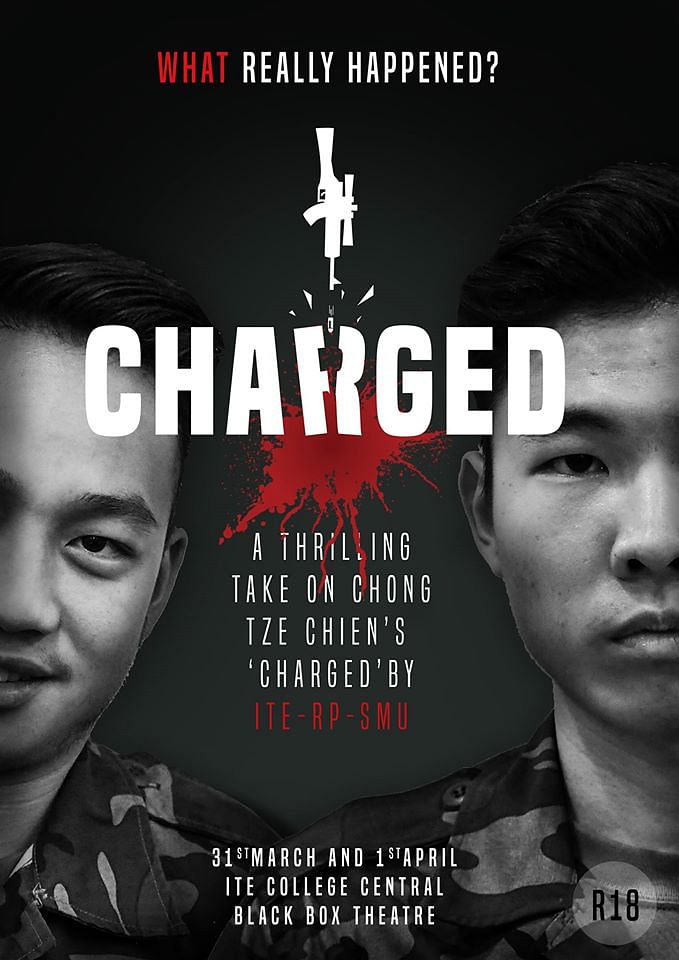It helps to be a "famous actor" when asking people to collaborate on a theatre project.
As a drama instructor at the Singapore Management University (SMU), especially one in her 60s who feels she has nothing to lose by trying new things, I am constantly looking for fresh ways to challenge my students.
Last August, I mooted an experimental student theatre project to three Institute of Technical Education (ITE) College Central lecturers and five Republic Polytechnic (RP) faculty members. It would be a seminal collaboration across three educational levels - ITE, polytechnic and university. And being new, it would not have formal management blessings.
The fellow instructors I reached out to took up the challenge and dared to attempt a new teaching methodology that might better prepare their students for uncertainty.
The Laboratory Project teaches risk-taking, thinking on your feet, adaptability and learnability. As there were no assigned funds, all - instructors and students - would be hungry, so we needed to be street-savvy.

RP students designed the set, costumes, soundscapes, and handled marketing. An ITE student headed lighting.
One RP lecturer waded through 86 presentations on set designs and costumes to shortlist 19 to be considered. SMU students directed, produced, acted and marketed. They also crewed under ITE stage managers, who train in professional performance production.
All understand the concept of domain skills. All students, rich or poor, learn not to take money for granted. They sell tickets. When I asked for a VIP ticket for a friend, they chorused, quoting my course outline: "We're a business creating our own product and marketing it."
I paid up.
At the end of this month, ITE-RP-SMU will stage Chong Tze Chien's play, Charged (2010), in four productions.
There were no auditions. You do not begin learning with rejection. All got the roles they asked for, but those who asked first, chose first. The casts are race-blind, gender-blind, talent-blind. Indians act as Malays, Chinese act as Indians. Women play men. Good actors take on small roles.
In one show, a slight Chinese woman plays a middle-aged lieutenant-colonel who gives a national serviceman corporal a severe beating. A Filipino student, a big man, plays the latter role.
When I first saw Matthew cowering on the rehearsal floor before Charlene, I laughed, but both continue in their roles. We seek not the well-made play but a courageous endeavour.
In my view, theatre is the best lesson for preparing students for a world of high-velocity change. You can be certain changes will happen, fast.
Two days before we began, one organisation changed the schedules. The SMU students howled in protest. They quarrelled about what was right; about professionalism, and about honouring negotiated terms.
I taught calm and level-headed thinking, quick analysis and strategic thinking. The matter was settled just after midnight that day. The students had learnt a lesson in real life, beyond the classroom and textbooks.
The problem arose because ITE students and SMU students operated in silos. The ITE team could not understand the staging of four different productions of the same show. They thought the different actors in the same roles were substitutes, like in a football match. In fact, there would be four productions, each with its own cast!
SMU could not understand why ITE students could not understand the format. Much miscommunication and some unhappiness ensued.
Finally, everyone got it. The last message in the tense exchange read: "Wanna do 4 cast, sure. We manage. We adapt."
All ended well.
The consulting agency PwC recently reported that the next 15 years will see robots taking over up to 50 per cent of jobs in Britain. Men are more vulnerable, so too the less educated. Governments need to do job matching and think about introducing a universal basic income.
Crucially, education must teach critical and creative thinking, and social skills. Education Minister (Higher Education and Skills) Ong Ye Kung assures us Singapore can be ahead of the curve. SIM University became Singapore University of Social Sciences this month. Talk about fast and decisive action.
Next year, there will be up to 20 per cent of places allocated to the Direct School Admission scheme where schools can admit students based on either their talent or academic achievements.
Mr Ong might look to our experiment to consider introducing collaborative theatre-making as a capstone seminar for graduating students. Theatre is sometimes misunderstood to the extent that acting is considered akin to prostitution in some cultures, yet no teaching better prepares a young person for a job. Through role-playing we learn empathy. By studying subtext we understand how the lived experience shapes behaviour and values. When we act, with different actors in the same role, we become acutely aware that we have to adapt socially to engender the targeted response.
Theatre is about unity. The weakest actor can shatter the delicate suspension of disbelief that storytelling relies on. We drill at rehearsals to attain perfection, and we commit to our chosen leader. The actor's mantra is: "The show must go on."
I know a Singapore actor who fell and broke her wrist early in a performance. With the hand in a makeshift sling, she completed the show and took curtain calls, before going to hospital. It took three operations to repair the injury but the wrist will never be good as new. This actor continues to perform regularly.
I know, because I am she.
•Margaret Chan, a stage actress for many years, is associate professor of theatre and performance studies (practice), Singapore Management University.
